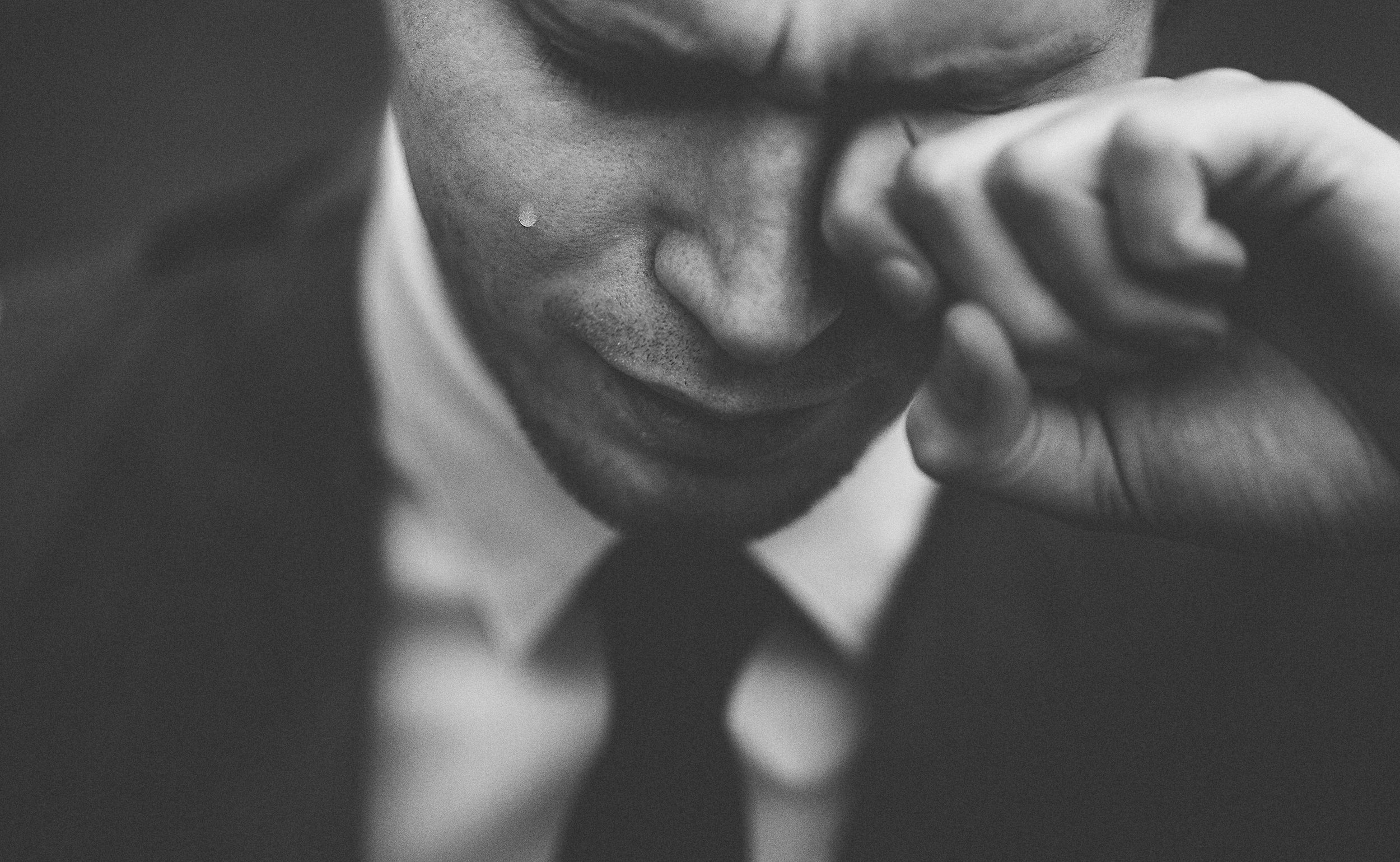The Truth About Men and Tears
/Raw, Masculine Emotion: The Truth About Men and Tears
By Adam Nisenson, AMFT, CSAT-C
“Heaven knows we need never be ashamed of our tears, for they are rain upon the blinding dust of earth, overlying our hard hearts. I was better after I had cried, than before—more sorry, more aware of my own ingratitude, more gentle.”
–Charles Dickens, Great Expectations
“Boys don’t cry.” How many times has this stereotypical, patriarchal notion been reinforced throughout your life? Parents, coaches, society at large—the concept that a man expressing his emotions or exposing the slightest sign of vulnerability, pain, or sadness is tantamount to weakness is one that seems to endure. It’s bombarded into our psyche throughout our lives; a lie that somehow remains ingrained in our culture and the idea of masculine identity; The Big Lie, reinforced time and again from childhood through adulthood and beyond. The reality is that it takes a great amount of strength to be open in moments of grief and pain. To share our sorrows and vulnerabilities with those we love is to gift them with our respect. To trust and allow them to support and console us at our most vulnerable is not only ok, but essential to living our healthiest, most authentic life.
The Most Human of Emotional Responses
In 2017, following the birth of his fraternal twins, actor George Clooney admitted to the Daily Mail during the Toronto Film Festival that he cried roughly four times a day. It’s not an entirely shocking concept. Parenthood—new parenthood in particular—is an awe-inspiring, terrifying jolt just violent enough to reduce even the greatest among us to rubble. Consider attempting to maintain some semblance of normalcy (eating, dressing, contributing to society) while literally learning to keep a brand-new human being alive. All while chronically sleep-deprived. Add to this the profound and spiritual understanding that you – you! – created human life and “New Parent Cries Often” hardly seems like particularly headline-worthy news.
But headlines it did make, with every publication from Harper’s Bazaar to Metro picking up the “story” and roaring to the heavens about Clooney’s somehow shocking admission. Had Clooney’s wife—had any other woman—revealed that they cried often during the stresses of new parenthood and there would have been no news to report. Women crying is seen as a normal expression of emotion. Men crying is seen as an aberration, a bold admission of weakness. Which is, of course, nonsense.
A Manly Cry
Science and our body’s own natural response system tells us that crying is normal, healthy, and necessary. But culture and the concept of a masculine identity continue to insist that strong men don’t cry, while many parents continue to raise their sons to cry solely in private—if at all. History, however, sides with the criers.
While women’s tears have often been associated with emotional weakness, up until quite recently getting misty-eyed was perfectly acceptable for men. Literature and history alike are filled with the tales of warriors, heroes, and lovers who were revered and respected despite often openly expressing their emotions—and yes, that means crying. Japanese samurai often sobbed during epic battles, and Abraham Lincoln was known to cry during his speeches. The hero of Chretien de Troyes’ round table fame, none other than Lancelot, was known to weep whenever he missed his true love and was adored all the more as a character and warrior knight by readers for it. And the Bible is chock full of examples of everyone from kings and entire cities to Jesus himself crying for all to see.
So… where did all the tears go? Regardless of the shift in “masculinity,” our bodies and minds were not designed to swallow and withhold emotion.
The Science of Tears
Of course, we’re not Samurais, so stopping in the middle of battle or a crisis situation for a good cry doesn’t make much sense. There are certain times when opting for stoicism is the better choice and the fact that in modern society men outnumber women in areas like law enforcement, public safety, and military personnel has certainly contributed to the rise in the image of an unemotional, detached, hero persona that so many have come to associate with a “real” man. Luckily, after years of berating men for expressing their grief, joy, or pain through tears, there seems to be a slight shift towards returning to see men’s tears as a sign of masculine strength.
But even setting the emotional value side, there are genuine, documented health and biochemical benefits to having a cry, as well. For starters, while you might feel a distinct difference between tears of sadness and those of joy, your body rarely makes a distinction. Intense situations of any kind can trigger responses (like the famed fight or flight instinct) in us. Tears act as a type of pressure valve, releasing an excess of stress hormones, including cortisol. Left unchecked and constantly suppressed, chronically elevated levels of these hormones can wreak havoc on your mood and disposition. That sense of relief and calm you feel after a good hard cry is in major part due to this hormonal release.
Those mood-elevating benefits are especially important when you consider than men are less likely than women to seek help for depression than the opposite sex—and three to four times more likely to commit suicide. Emotional suppression can manifest itself in other physical symptoms as well, including anxiety, acute pain, muscle soreness, chronic headaches, sexual dysfunction, gastrointestinal distress, eating disorders, alcoholism, and drug abuse.
Developing enough trust to accept that you won’t be judged for expressing your feelings and vulnerabilities can be a scary, sometimes trying experience. But learning that not only do real men cry, but they embrace the fullness of all their emotions—and share them with those they love—is an essential step towards living an authentic life from the heart.


